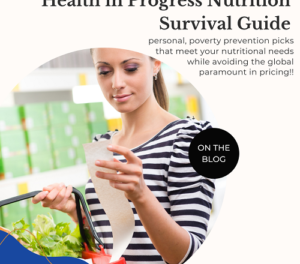In a bid to protect themselves from COVID-19, millions of people throughout the world are self-isolating and working from home. For some the concept is daunting, while others are embracing the idea of spending more time on the sofa – but what are the relationship implications when you are forced into spending 24 hours a day with your significant other, potentially for months on end?
With children also home from school, relationships can be put under even more strain – although research from Direct Line shows that many parents actually stay together for the sake of their children when they might otherwise separate (7.6 million parents fall into this category in the UK alone). Interestingly, the rate of divorce requests in China rose by a significant number after couples spent an abundance of time together during self-isolation. Is it possible that spending too much time together could put a strain on your relationship?

While the answer is varied and complex depending on the type of relationship you have with your partner, and whether there are any underlying unresolved issues, it’s important to do everything you can to live in harmony with one another – particularly when you’re both spending additional time at home.
Here are just a handful of ways to reduce the strain of self-isolation on your relationship:
1) Agree on workplace boundaries
Unfortunately, not everybody has the space or budget to enjoy the luxury of a private home office. Instead, many workers are finding themselves creating makeshift office spaces on kitchen tables, coffee tables or even with a laptop on the sofa.
It’s important to understand that sitting in the same space together could result in tensions – particularly if a tangle of phone calls, paperwork and administrative tasks are causing chaos. To avoid this, you should both agree on work boundaries as soon as possible (if space allows). For example, one of you could use the bedroom to work in, while the other uses the kitchen.
Try to be disciplined about your working areas, remember to keep makeshift workspaces tidy, and implement a rule that allows you to clear work-related items to one side at the end of the day. This will help you both to distinguish between working time and home time.

2) Don’t shy away from date nights
When you’re living in each other’s pockets, there are fewer opportunities to feel like you miss your partner, and you won’t find yourself saving up stories to discuss with them at the end of the working day. This close proximity can cause the spark to fade in any relationship – and you might need to get creative to reignite things.
If possible, try to plan a date night of some sort which takes you away from your usual surroundings while remaining safe as per government guidelines. This could be something as simple as a walk in an open field.
Spontaneity is good too: try to inject an element of surprise into your time in isolation by unexpectedly complimenting your partner, offering to cook dinner, and taking pride in your appearance – but remember these things work both ways!
3) Communication is key
Self-isolation will undoubtedly cause many to feel agitated, bored and frustrated when they have no option but to remain at home. Recognizing that you feel this way before projecting your frustration onto somebody else is crucial to maintaining a healthy relationship. This involves communication – don’t be afraid to articulate how you feel, even if it’s something as simple as: “I’m frustrated, I just need a little moment to myself.” You should also make an effort to ask how your partner is feeling, and whether there’s anything you can do to help.

4) Take sufficient breaks from each other
Being with your partner 24/7 can cause even the smallest issues to become magnified. Personal space is important to ensure you aren’t going to feel suffocated.
Take breaks from one another by making time to keep in contact with friends, taking solo walks for some fresh air, having a long bath or taking some time to read a book. Allowing you – and your partner – to have a bit of quiet time away from one another will help to ease any frustrations that self-isolation may be causing. Remember to breathe deeply and remind yourself that this situation is only temporary – and that normality will return to your relationship at some point in future.
Madison Jones is a freelance researcher, writer, and graphic artist from Leeds. She holds a degree in BA Communication and Media and currently taking her third year in MA Communication and Media at the University of Leeds. Her research ranges from health, technology, business, family law, and sustainability. With a successful two years in the field of research, she has been commissioned by different large companies with their internal cases.











Recent Comments